Zeithain. This is supposed to be a print shop? Not a trace of printer's ink: instead, spotless white rolls of paper are stacked in rows, a cleaning machine rolls almost silently across the bare plastic floor. The light from countless lamps on the ceiling is reflected in it. Half a dozen employees disappear between cuboid machines that, despite their size, only emit a half-loud click and hum.
The hall on the edge of the Zeithain industrial estate is home to one of the most modern printing plants in Europe, says managing director Stefan Harder. "We only do digital printing and no longer use conventional printing technology," says the 51-year-old, who himself knows the industry well: the Swabian is a trained offset printer, later earned his master's degree and ran his own offset printing company in southern Germany. "However, I sold it in 2014," says the head of Harder-Online GmbH, which is better known in the industry as "Labelprint24". Under this name, Harder printed
labels for Germany, Austria, Switzerland, Poland and the Czech Republic from Großenhain - until he ran out of space in a former supermarket. That's why the company moved to Zeithain last autumn. But why Zeithain of all places? "Above all, we wanted to make sure that our employees could cope with the new commute," says Stefan Harder. In Großenhain there were just under 40, in the new hall in the industrial estate An der Borntelle there are 45 - and from the summer there will also be training here.
Labelprint24 employs a total of 70 people - most of them in a three-shift system here on site, some in offices in Frankfurt and southern Germany as well as in the Czech Republic, where the IT department is located. Altogether, they work to supply customers throughout Germany and beyond as efficiently as possible. "The goal is to get to the order with as few clicks as possible." The product range includes all kinds of labels that can be found on cleaning products in DIY stores or on food in supermarkets. Increasingly, however, it also includes
folding boxes of all possible sizes - which are in demand in the age of online shipping. However, this also required new machines, so that the new hall in Zeithain is already getting too cramped after just a few months. "We use the most modern machines here, some of which we even bought as prototypes," says Stefan Harder. We are talking about large sums of money: The last new acquisition cost one and a half million euros.
The space directly next to the scaffolding specialist Klukas offers enough room for expansion to the rear so that even the construction of a second hall would not be out of the question. "That was an important criterion for us," says Stefan Harder, who is counting on further growth. "Last year alone we had growth of more than 25 per cent."
Also indispensable for an online print shop was a fast internet connection, which was quickly realised at An der Borntelle. The condition of the hall was less important: the former electrical warehouse was in need of renovation after being used temporarily for a notorious asylum centre.
However, nothing of this is noticeable now when you take a tour of the sparkling clean company with the managing director. "We also meet the strict requirements of the food processing industry," says the managing director. Chocolate packages can be delivered just as well as toothpaste tubes. This week, however, the food itself was set up behind a floor-to-ceiling glass wall that separates a lounge from the actual production hall: that is where Harder received Zeithain's mayor Ralf Hänsel (non-party) and the local councillors on Monday. "I was asked to present my company to the local council - so I invited them to come and see for themselves," says the 51-year-old.
The mayor, at any rate, is pleased that a new use has been found for the property. Even if hardly any customers realise that they very often also buy a product from Zeithain when they reach for the shelves somewhere in Europe.

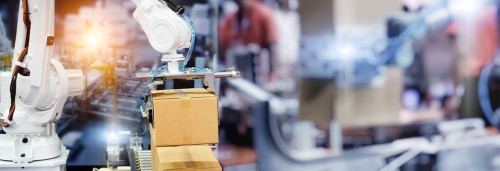
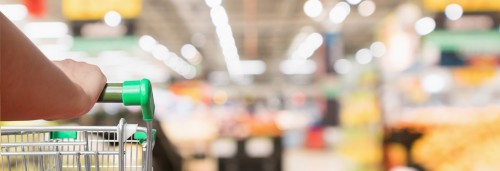
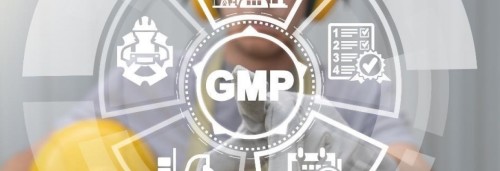






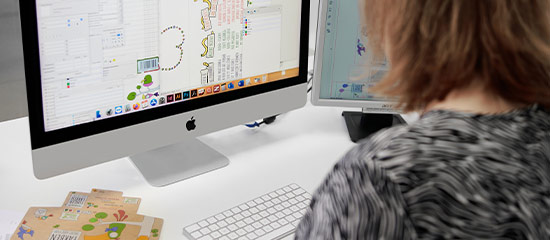
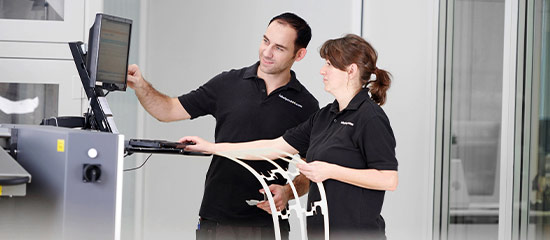
 Roll labels request form
Roll labels request form  Booklet labels request form
Booklet labels request form  Folding boxes request form
Folding boxes request form  Custom made shipping boxes request form
Custom made shipping boxes request form  Package leaflets request form
Package leaflets request form  Laminate tubes request form
Laminate tubes request form 



















